Graduate Colloquium Series
Our Graduate Colloquium series includes lectures by distinguished guests, our own faculty, and senior graduate students on all fields of research and creative activity in music.
Admission is free and open to all. Note that some of these in-person events are held in Music Building room 242 while some are in Talbot College room 101. All events will be on Fridays at 3:30.
Please contact ayardley@uwo.ca for more information.
2023-24 Colloquia
Winter 2024
Friday, March 22| 3:30pm
MB 242
Omar Daniel (Western University)
“Antarktos Monodies: conception, creation, realization"
Bio
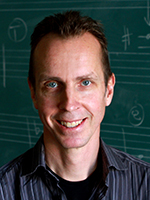
Omar Daniel received his MusDoc in music theory and composition from the University of Toronto in 1995 and joined the Don Wright Faculty of Music in 2000. He is an active composer, having written extensively in solo, chamber, electronic, orchestral and operatic idioms.
Dr. Daniel's current research interests explore the inclusion of ancient Estonian folksong material in his original compositions: Metsa Maasikad (Wild Strawberries), Violin Concerto, Mehetapja (Husband Killer) and Üheksa Eesti Regilaulud (Nine Estonian Runo Songs) all explore this relationship. Dr. Daniel's analytical interests are broad but have a particular focus on composers from northern and eastern Europe including Kurtág, Schnittke, Ustvolskaya, Pärt, Gubaidulina and Ligeti.
Abstract
Antarktos Monodies is a composition for a cappella choir composed by Dr. Daniel for the Estonian Philharmonic Chamber Choir in 2023. The work sets the sonnet Antarktos by American writer Howard Phillips Lovecraft. This presentation will explore the work from its conceptual stage, through the composition phase, culminating with the premiere performance in February 2024.
Past 2023-24 Colloquia
Fall 2023
Friday, October 27| 3:30pm
MB 242
Lucy Jones (Dr. Lucy Jones Center for Science and Society)
"Tempo: Music for Climate Action"
This presentation is made possible by the Western Academy for Advanced Research, as part of the Academy’s support for one of its themes “Climate-resilient Buildings and Infrastructure."
Bio
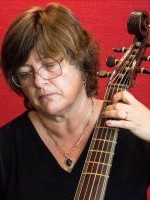 Dr. Lucy Jones is founder and chief scientist of the nonprofit Dr. Lucy Jones Center for Science and Society, which supports the application of science in the creation of more resilient communities. With a Bachelor of Arts in Chinese Language and Literature from Brown University and a Ph.D. in Geophysics from MIT, she worked as a seismologist at the US Geological Survey for 33 years where she developed the methodology used for earthquake advisories in the State of California, created the Great ShakeOut drill, encompassing over 60 million participants globally in 2019, served as Science Advisor for Seismic Safety for the Mayor of Los Angeles and wrote over 100 published papers on statistical seismology and integrated disaster scenarios. She has held visiting professorships at University of California (Hitchcock Chair), and University of Oregon (Morse chair).
Dr. Lucy Jones is founder and chief scientist of the nonprofit Dr. Lucy Jones Center for Science and Society, which supports the application of science in the creation of more resilient communities. With a Bachelor of Arts in Chinese Language and Literature from Brown University and a Ph.D. in Geophysics from MIT, she worked as a seismologist at the US Geological Survey for 33 years where she developed the methodology used for earthquake advisories in the State of California, created the Great ShakeOut drill, encompassing over 60 million participants globally in 2019, served as Science Advisor for Seismic Safety for the Mayor of Los Angeles and wrote over 100 published papers on statistical seismology and integrated disaster scenarios. She has held visiting professorships at University of California (Hitchcock Chair), and University of Oregon (Morse chair).
Dr. Jones is the author of The Big Ones: How natural disasters have shaped us (and what we can do about them), published by Doubleday in 2018, and available in 7 languages. In 2020, she launched the podcast, Getting Through It, with co-host John Bwarie. She is also a musician, performing on the viol with Los Angeles Baroque and SoCal Viols, and composed music on climate change, In Nomine Terra Calens, https://www.youtube.com/watch?v=4plSXjcjxVA.
Her pioneering science was recognized with numerous awards, including the Samuel J. Heyman Service to America Medal, the Distinguished Service Award from the US Department of Interior, and public service awards from the American Geophysical Union, Seismological Society of America, Earthquake Engineering Research Institute, Geological Society of America and the American Geosciences Institute
She created and now leads a project to engage climate scientists, social scientists and musicians in creating music that will inspire action on the climate crisis called Tempo: Music for Climate Action.
Abstract
Lucy Jones (California) and Emiliano Rodriguez Neusch (Argentina) created the Tempo Project in 2021 to bring together climate scientists and engineers, social scientists, and musicians to explore the ways in which music can be used to inspire action on the climate crisis. The goal of the Tempo Project is to combine the insights from science with the power of music to change the emotional climate about climate change. It seeks to shift our society’s emotions from despair, which disincentivizes action, to the feeling and awareness that there is still something we can do. The project fosters dialogue between the different experts, supports composers and the production of concerts that combine music and climate information.
Friday, November 17| 3:30pm
TC 101
Joel Sachs (The Julliard School)
"Living It: A global life in new music"
Please join us for an informal conversation with the multifaceted Joel Sachs, moderated by Dr. Paul Frehner and Dr. Kevin Mooney.
Bio
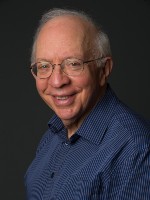 Pianist-conductor-historian Joel Sachs is professor emeritus at The Juilliard School, New York City, where he created, directed, and conducted the New Juilliard Ensemble, a chamber orchestra for the newest music; created and directed the annual week-long Focus Festival, which explored many topics in global music; and taught new-music performance, chamber music, and music history. Outside Juilliard he is co-director of the New York ensemble Continuum, which has played all over the planet. Since retiring — which he calls “ReWirement” — in 2022 after 52 years, he has been giving recitals, learning new repertory, writing two books, and enjoying life. This Fall, his engagements include a concert at St Bartholomew’s (London, UK), in celebration of its 900th anniversary, and a lecture-recital at the Grieg-Begegnungsstätte (Leipzig).
Pianist-conductor-historian Joel Sachs is professor emeritus at The Juilliard School, New York City, where he created, directed, and conducted the New Juilliard Ensemble, a chamber orchestra for the newest music; created and directed the annual week-long Focus Festival, which explored many topics in global music; and taught new-music performance, chamber music, and music history. Outside Juilliard he is co-director of the New York ensemble Continuum, which has played all over the planet. Since retiring — which he calls “ReWirement” — in 2022 after 52 years, he has been giving recitals, learning new repertory, writing two books, and enjoying life. This Fall, his engagements include a concert at St Bartholomew’s (London, UK), in celebration of its 900th anniversary, and a lecture-recital at the Grieg-Begegnungsstätte (Leipzig).
Photo by Rosalie O'Connor.
Friday, December 1| 3:30pm
MB 242
Emily Abrams Ansari and Joel Martinez Lorenzana (Western University)
"Music and Healing in Post-Civil War El Salvador: The Possibilities of Student-Faculty Collaboration in the Humanities"
Bio
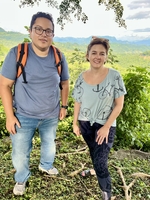
Joel Martinez Lorenzana is a PhD student in Music Education at Western. He worked for thirteen years as a faculty member of the Art Department at the National Autonomous University of Honduras and was coordinator of the Bachelor of Music program from 2016-2019. Joel is interested in looking at innovative approaches to music teaching and learning, imagining ways to transform, transgress and delink music from hegemonic practices.
Emily Abrams Ansari is an Associate Professor of Music at Western, and Assistant Dean of Research. Her research explores music and politics during the Cold War period in the United States, El Salvador, and Canada. Her book Sound of a Superpower: Musical Americanism and the Cold War was published by Oxford University Press in 2017.
Abstract
In this talk we offer an informal overview of our research on the music of civil war and post-civil war El Salvador, which engages approaches from musicology, music education, the digital humanities, and ethnomusicology, and discuss grad student-faculty collaboration.
First, we lay out the various projects involving music that we are working on together and with others as part of the large team project "Surviving Memory in Post-Civil War El Salvador" (PI Amanda Grzyb, FIMS), which is funded by Western University and a $2.5 million SSHRC Partnership Grant. These projects include music education initiatives, a digital archive of songs from the war, and studies of individual musicians, post-war music programs, and the uses of music during the war and at present-day commemorative events.
We will then discuss our experiences of working collaboratively with each other and others in the "Surviving Memory" team. True collaboration between graduate students and faculty is still relatively rare in the humanities. Large interdisciplinary collaborative grants like the SSHRC Partnership grant, however, encourage the meaningful engagement of "Highly Qualified Personnel," as SSHRC calls students and other trainees, in the research process. We hope, finally, to lead a discussion with those present about what this more science-style approach to research might mean for graduate student training in the Humanities.
Friday, February 9| 3:30pm
TC 101
Kristin M. Franseen (Concordia University)
“Some vague and mysterious way”: Unpacking Dubious Sources in the Western Art Music Canon
Bio
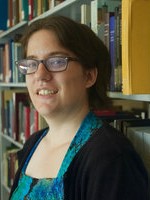
Kristin M. Franseen is a postdoctoral fellow in the Department of History and Research Associate at the Simone de Beauvoir Institute at Concordia University, where her work is supported by postdoctoral and knowledge mobilization grants from the Fonds de recherche du Québec – Société et culture (FRQSC). Her work focuses on the place of gossip, anecdote, and other unreliable sources in the history of musicology and composer biography. Her first book, Imagining Musical Pasts: The Queer Literary Musicology of Vernon Lee, Rosa Newmarch, and Edward Prime-Stevenson, was released by Clemson University Press in 2023. Articles from her research also appear in the journals Music & Letters, 19th-Century Music, the Journal of Historical Fictions, and the Cahiers de la Société québécoise de recherche en musique, as well as in the magazines Musique et pédagogie, VAN, and Contingent. In the spring of 2024, she will join the Don Wright Faculty of Music at Western University as part of the Western Postdoctoral Fellowships Program. Her next project, The Intriguing Afterlives of Antonio Salieri: Gossip, Fiction, and the Post-Truth in Music Biography, follows the interactions between fictional and factual sources, histories of misinformation, and the social and historical constructions of collegiality, pedagogy, and canonicity from the 1820s to the 2020s.
Abstract
This presentation considers the role of unreliable sources (including gossip, anecdote, misreporting, and fiction) in the “canonization” of particular musical figures and the construction of biographical and biofictional narratives. Using 19th- and early 20th-century examples connected to the musicological mythmaking surrounding Pyotr Tchaikovsky and Antonio Salieri as case studies, I demonstrate the development, proliferation, and appeal of what I term “canonical gossip,” or an interdisciplinary and multifaceted body of anecdotal claims that serve to delineate musical canons, reinforce misleading biographical narratives, and construct popular images of music history. My approach builds on Christopher Wiley’s theory of “mythological motifs” in composer biography (2008) and Marie Bennett’s idea “polymorphic myths” (2018), as well as recent scholarship in history, literary studies, and rhetoric on the formation and development of conspiracy theories (Shapiro 2010, Budra 2020, Rice 2020). Instead of viewing these sources as embarrassing missteps that more recent musicological research has diligently corrected, I argue that a deeper study of the history of these persistent (if often historically and musically dubious) narratives reflect something about how we interpret factual sources and mediate the grey areas, gaps, and ambiguities in the musicological archive.
Friday, March 8| 3:30pm
TC 101
Jeffrey Lupker (Staccato)
“The Next Big Shift in Music Creation: From Analog to Digital to AI"
Bio
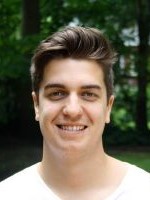
Dr. Jeffrey Lupker is the CEO/Co-founder of Staccato, which is a platform of generative AI tools for musicians and lyricists which helps them to remain in an uninterrupted state of creative flow as they create. By allowing users to input a few keywords, lyrics or bars of music, Staccato can suggest ideas on what might come next to help overcome writer’s block and inspire new creative directions. Dr. Lupker holds a PhD from Western University’s Don Wright Faculty of Music and has been contract faculty in the Music Research and Composition department. Beyond Staccato and his research, Dr. Lupker is on the advisory council for Music Canada and an active performer on primarily guitar and keyboards and has played across Canada and USA with singers such as Juno Winner and Canada/America’s Got Talent finalist Stacey Kay and Canada’s Drag Race Winner Priyanka.
Abstract
This presentation will explore a shift in music composition regarding the intersection of AI and creativity, highlighting ways that AI can complement composition while acknowledging the potential downsides. By examining a range of AI models and applications currently available for music creation, accompanied by examples of songs written or produced with these tools — we will uncover the practical applications and innovative outcomes of this technological collaboration.
After showcasing these practical applications, we will explore the broader implications of AI's integration into music. This includes its potential to redefine creativity, influence musical trends, and transform the music industry's landscape. Through this comprehensive analysis, we aim to illuminate the multifaceted influence of AI on music, offering perspectives on both the opportunities it presents and challenges that must be navigated through.

